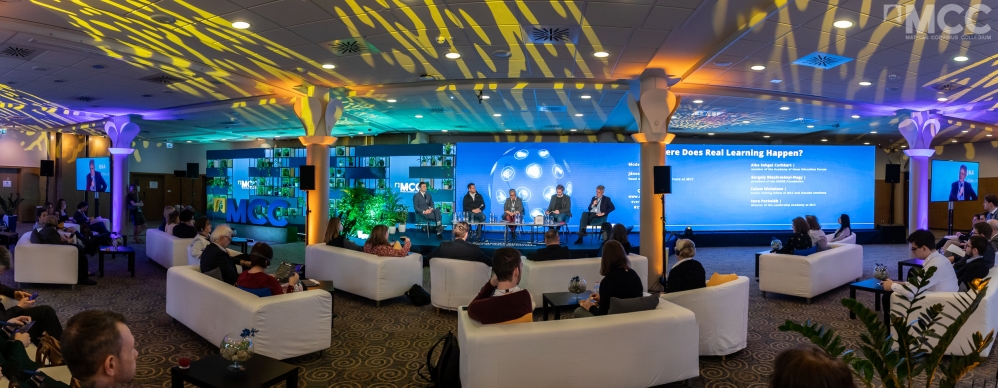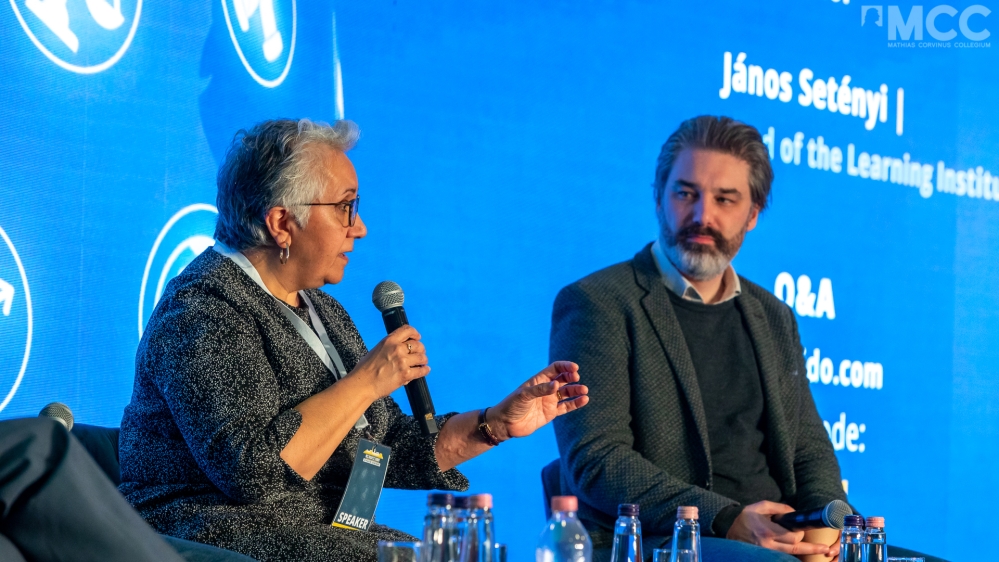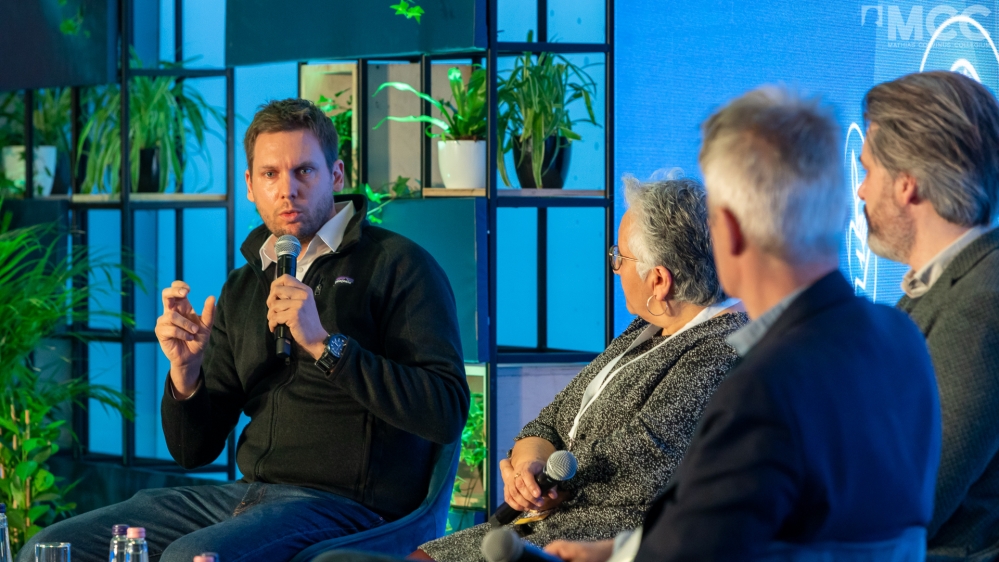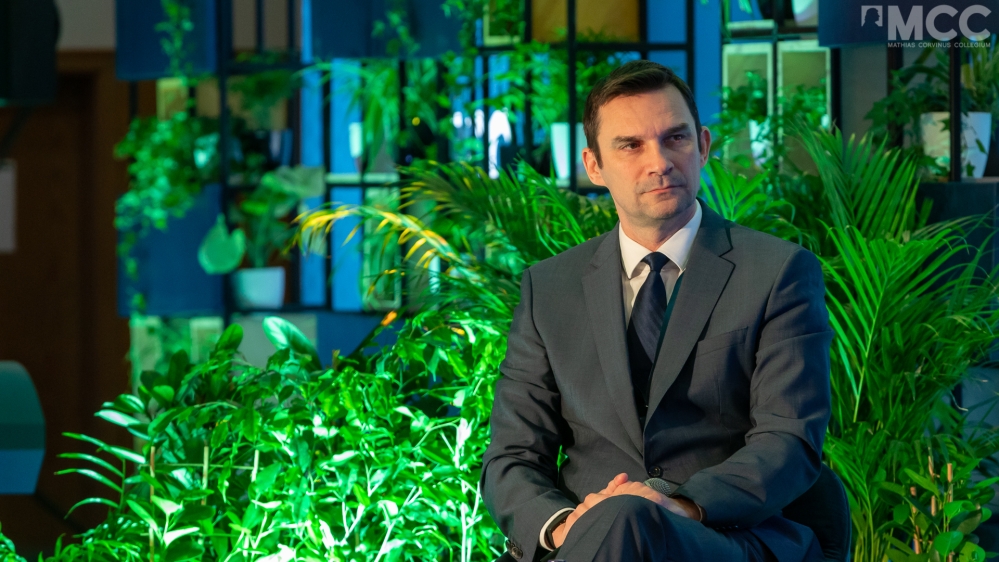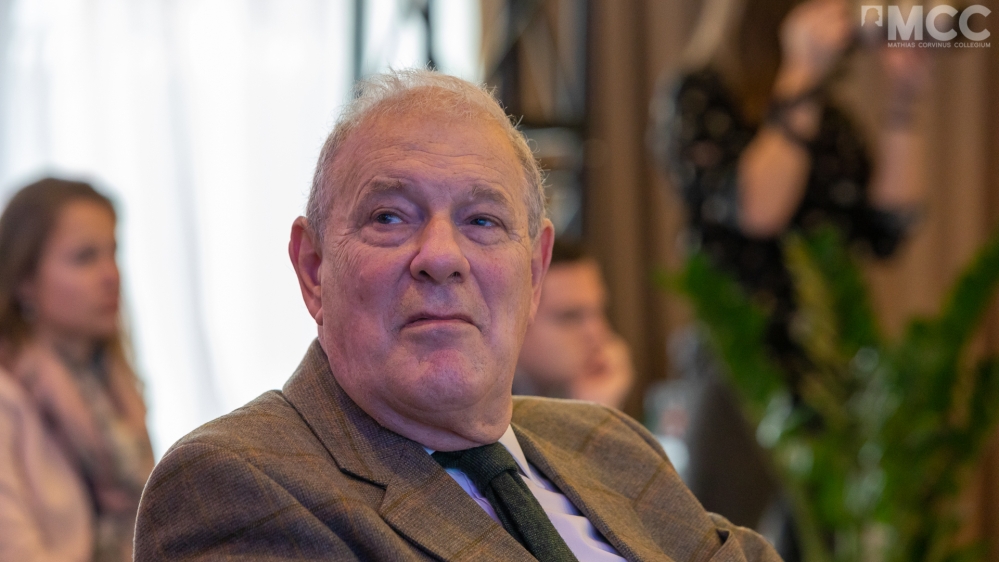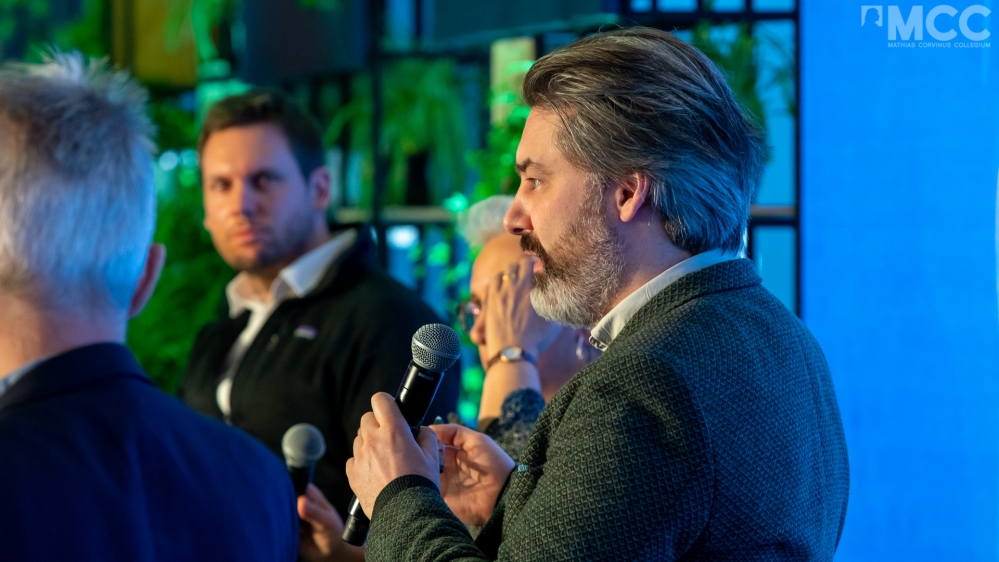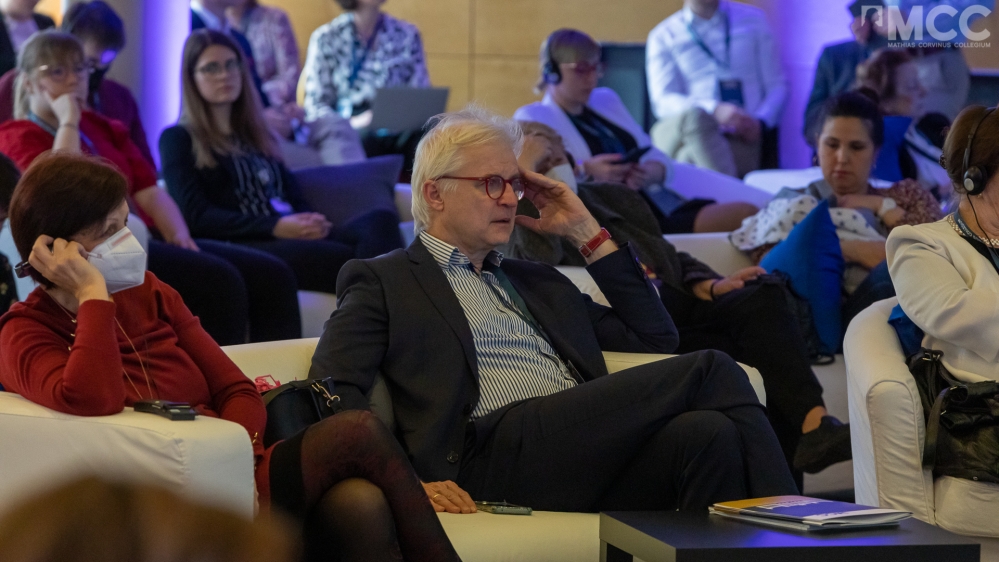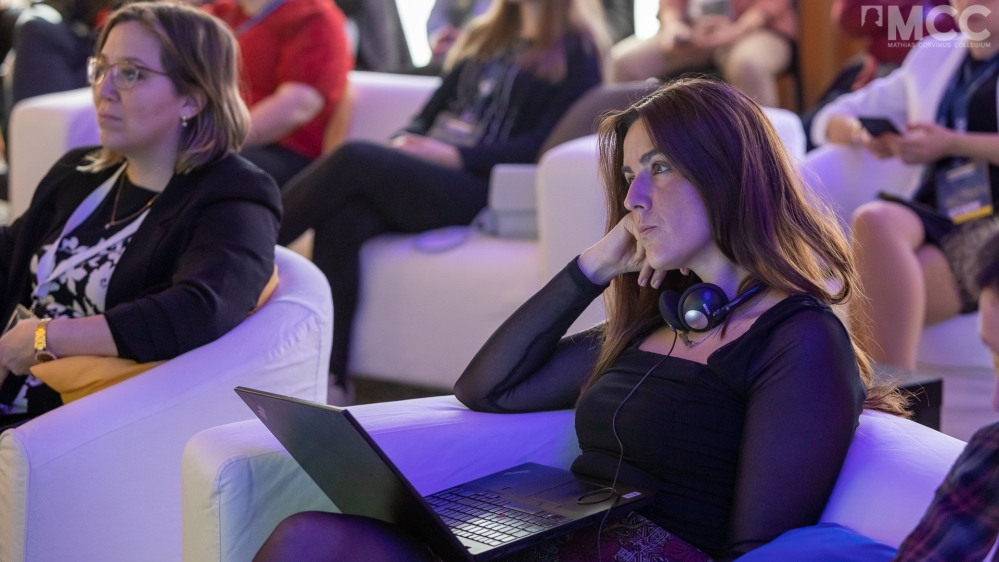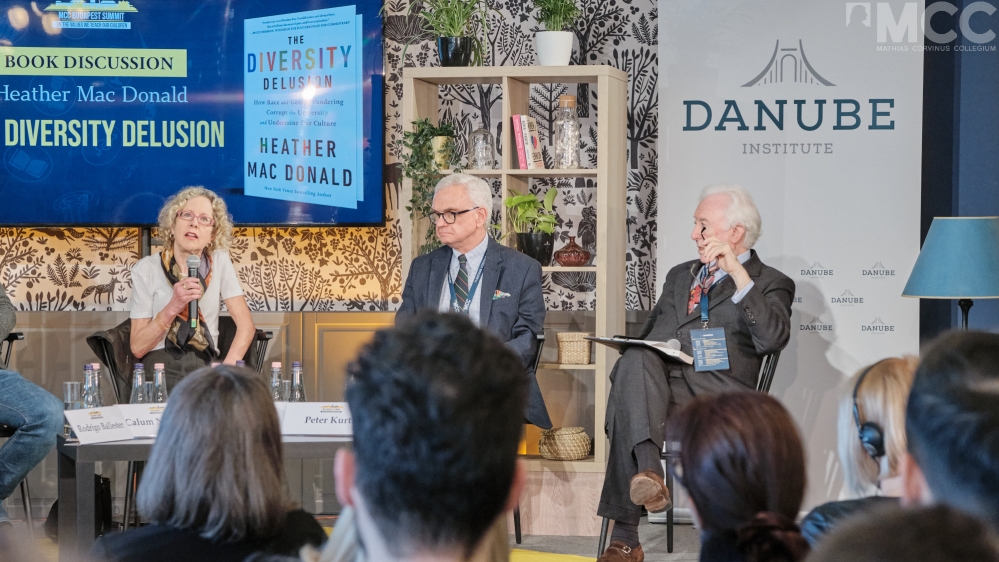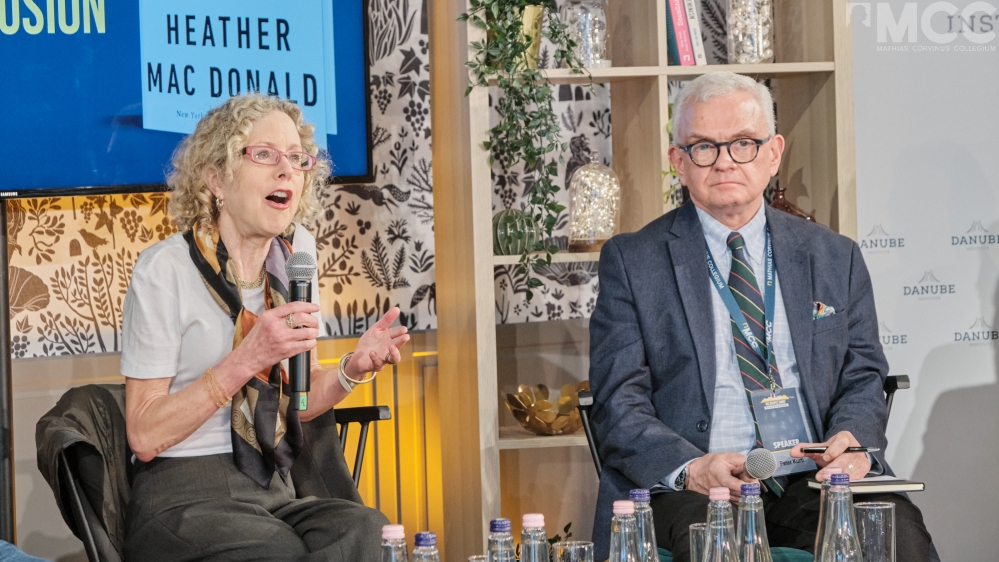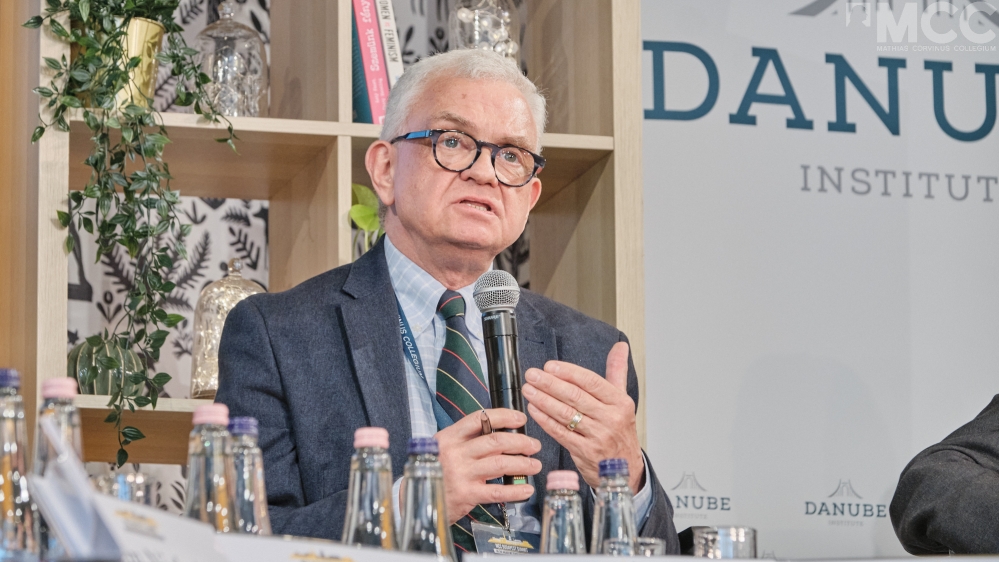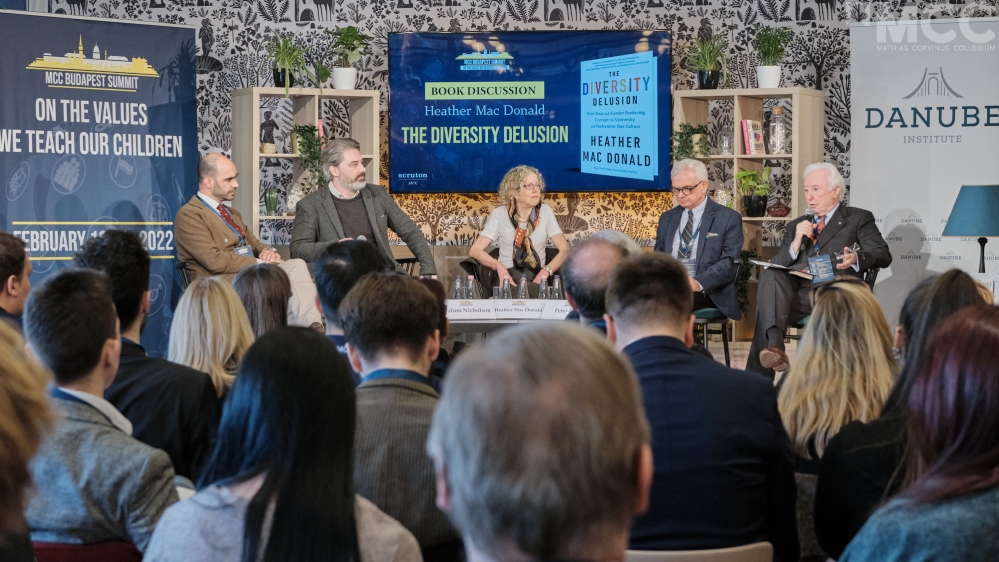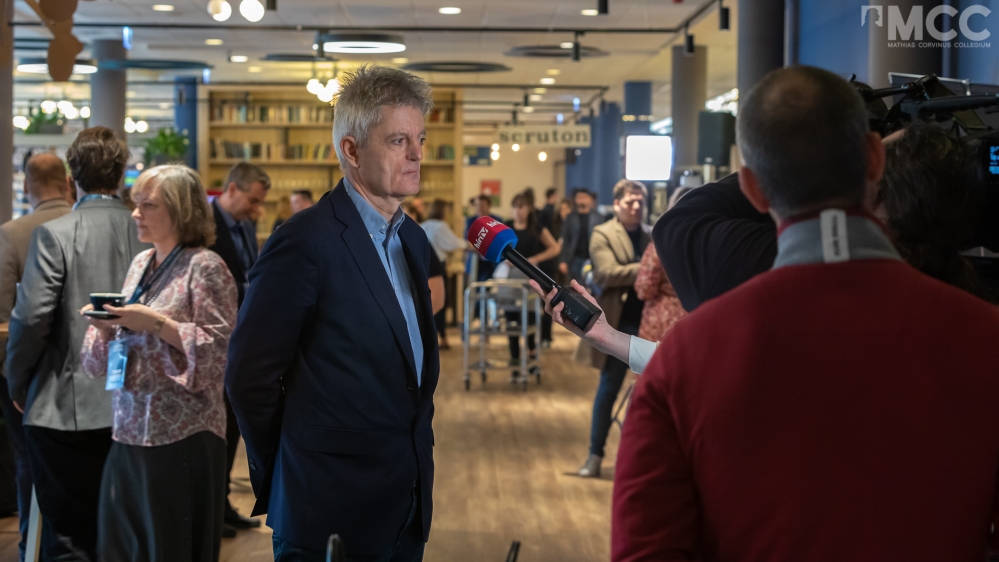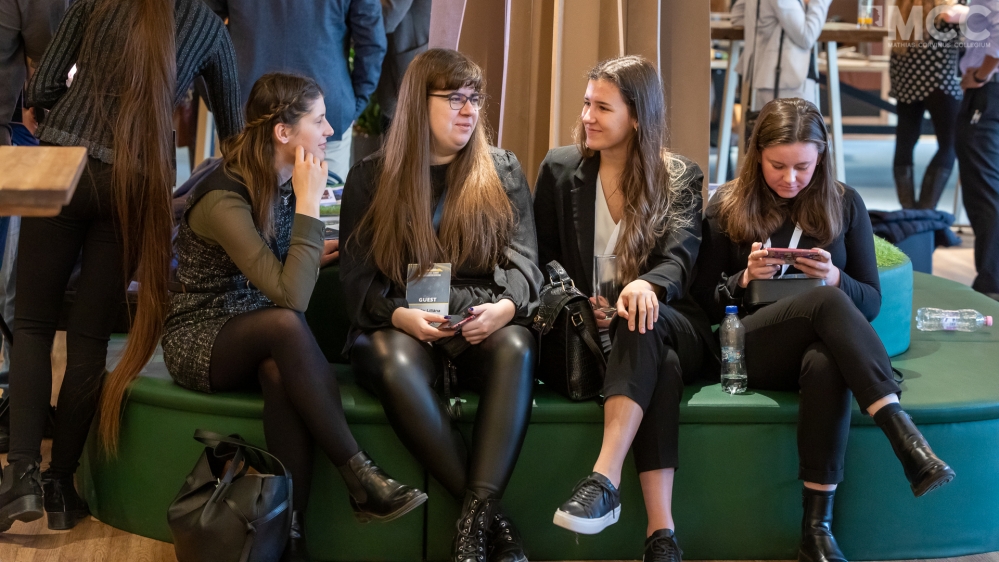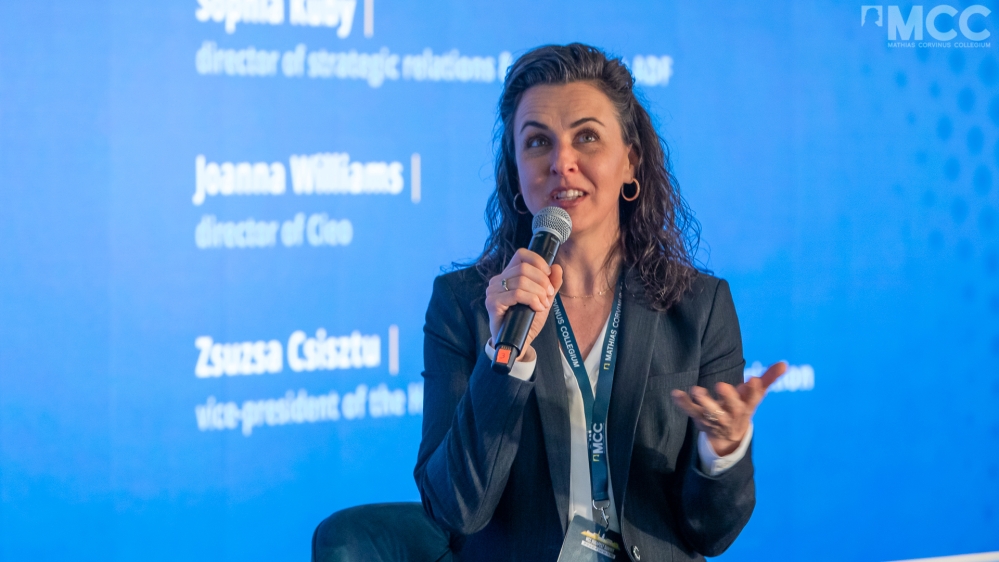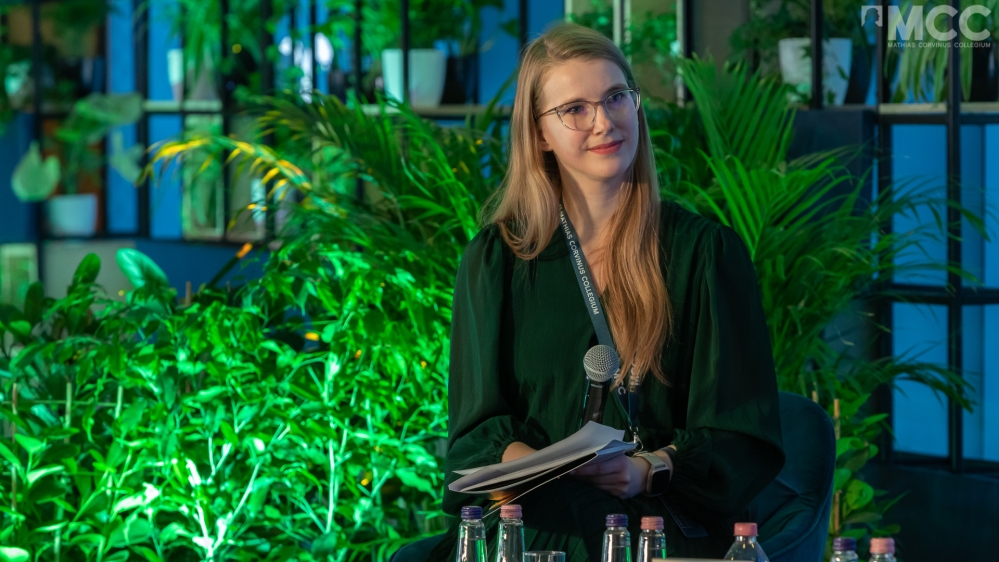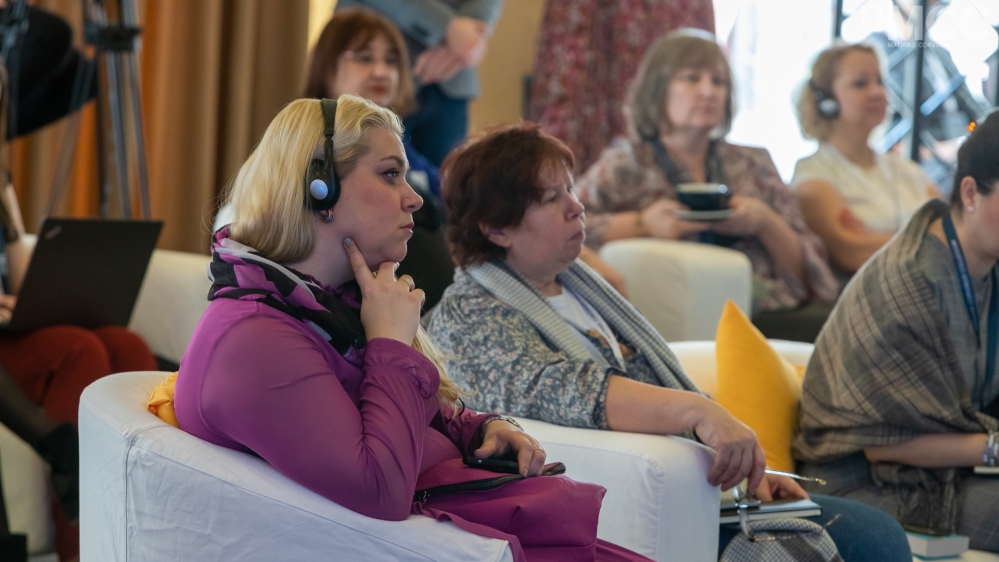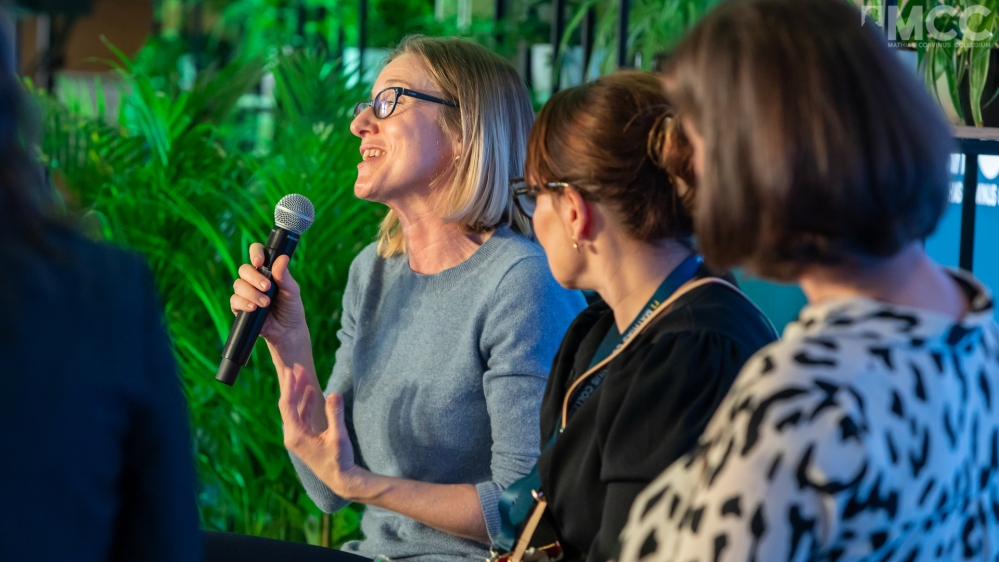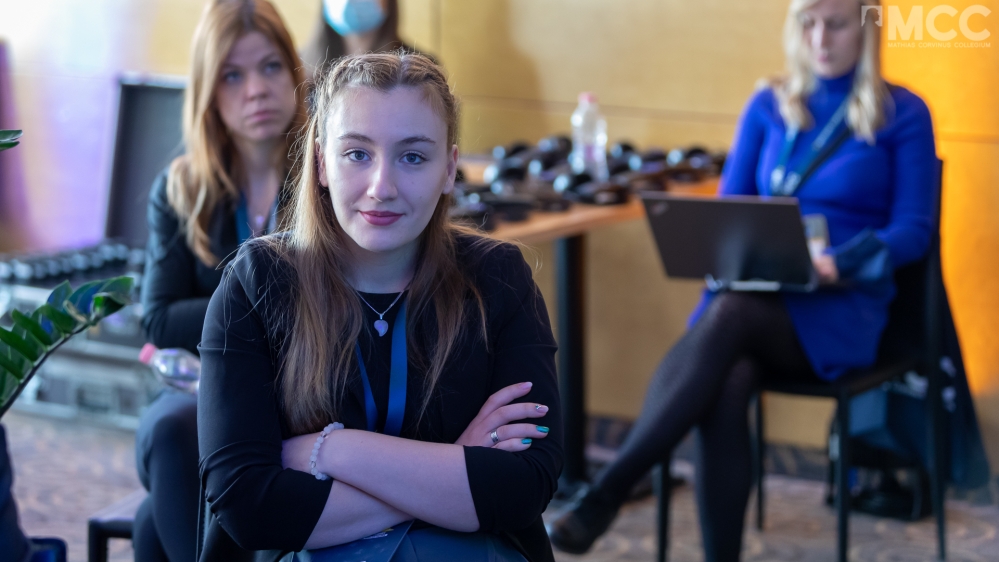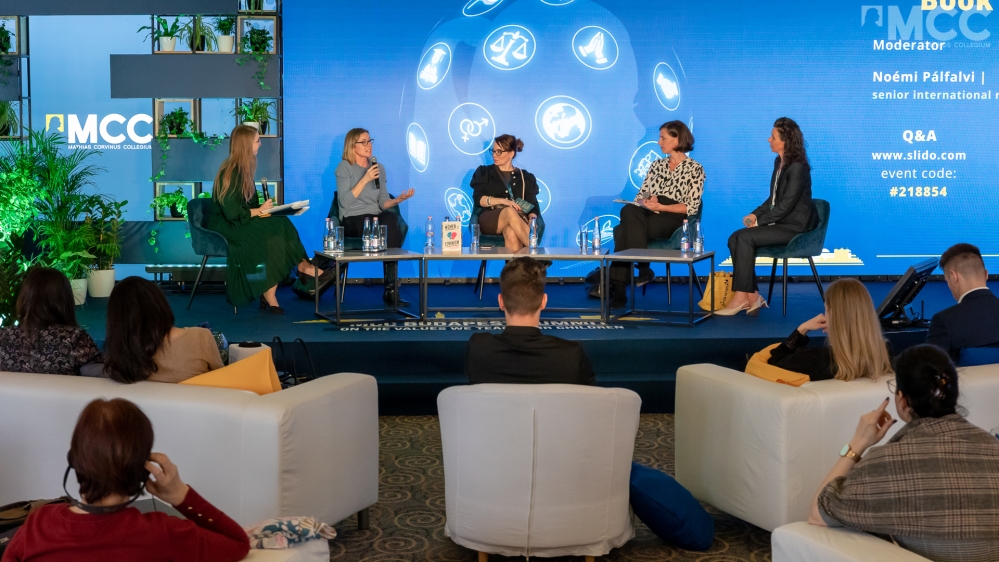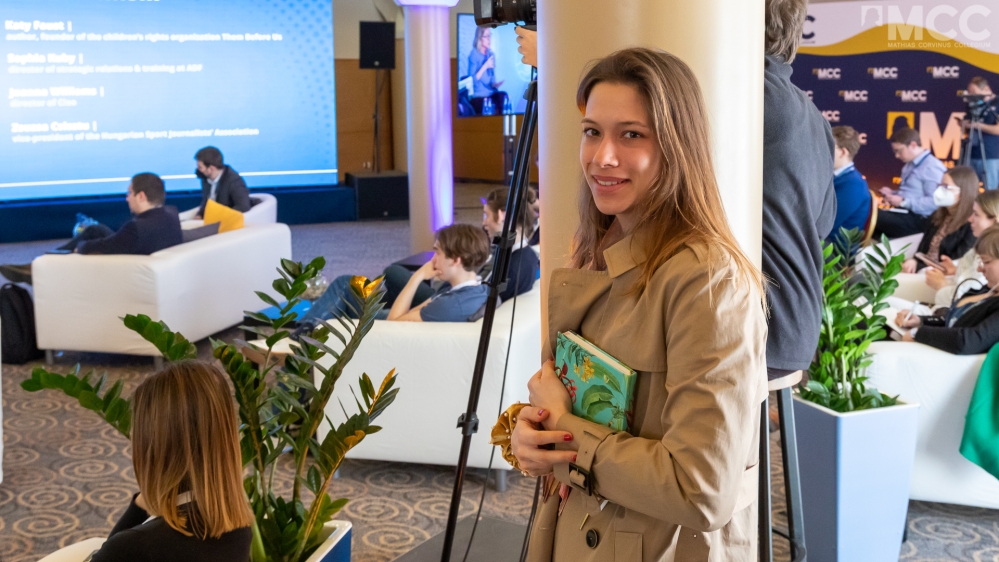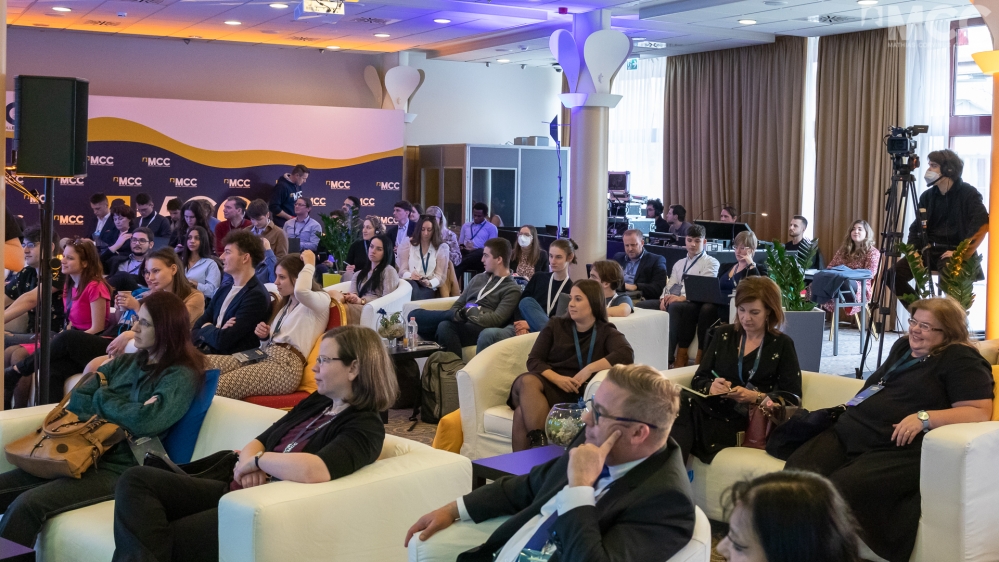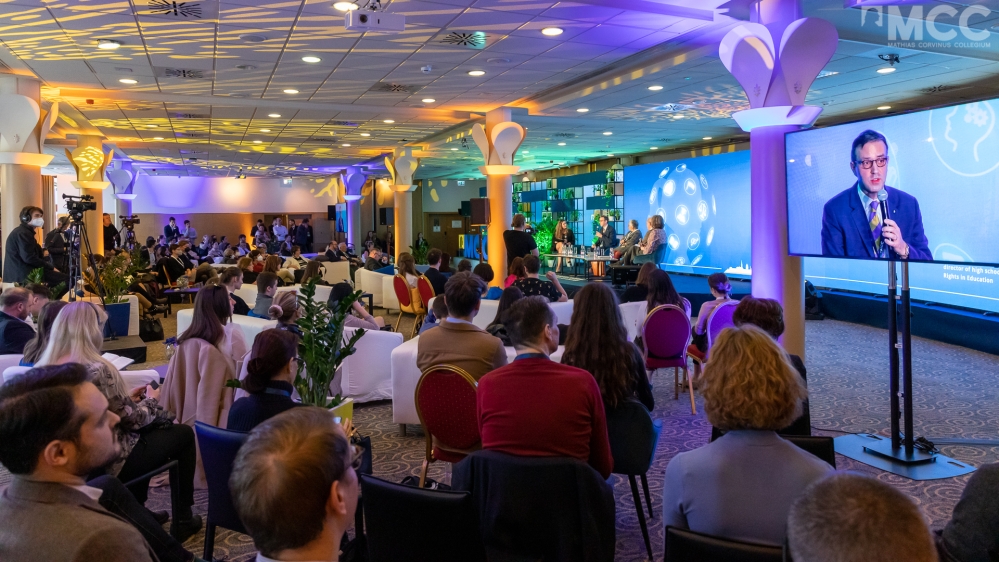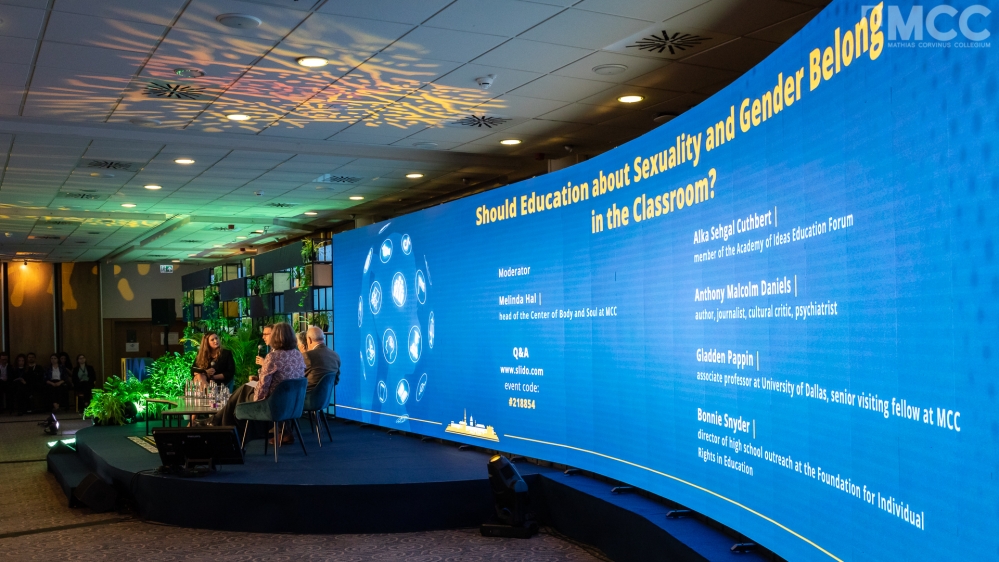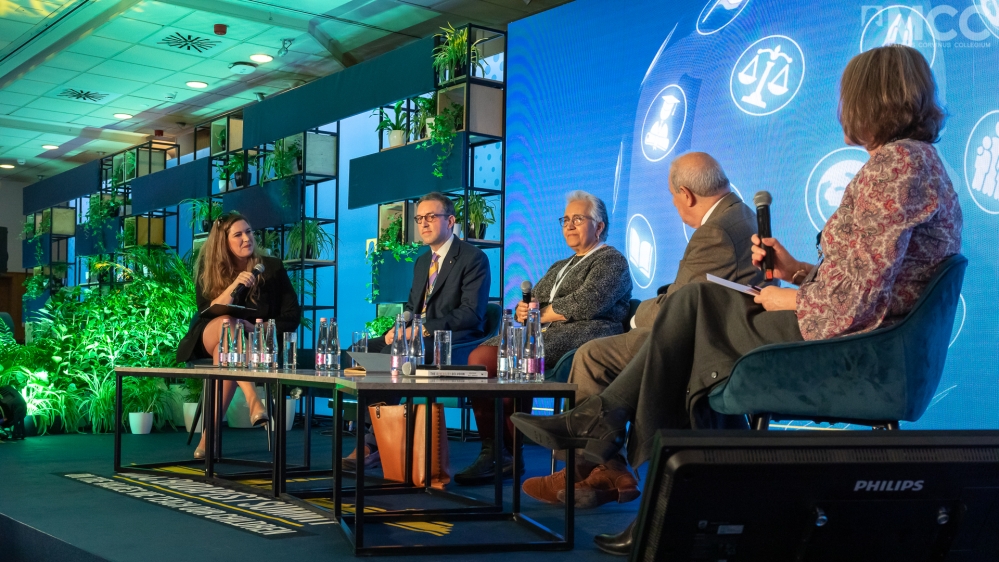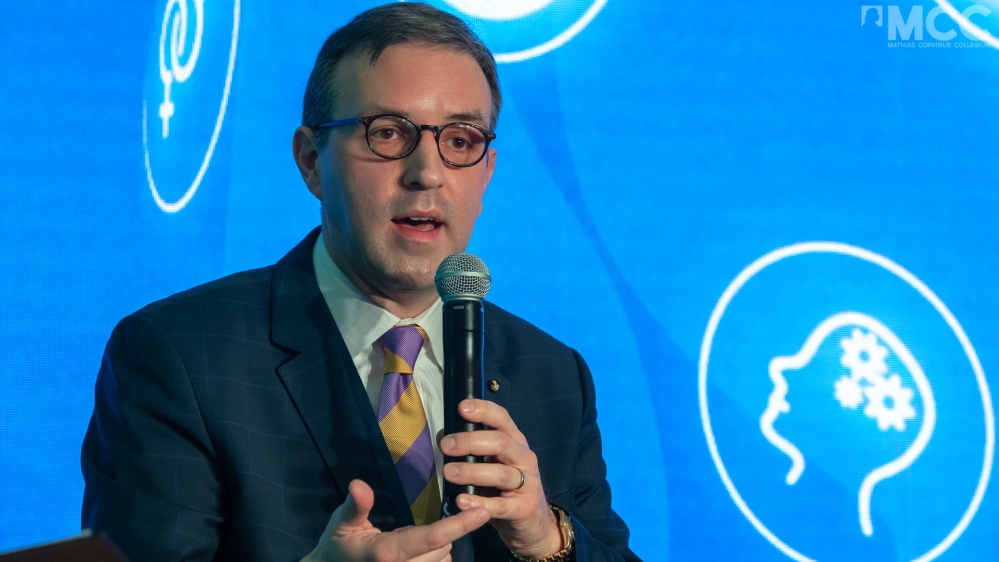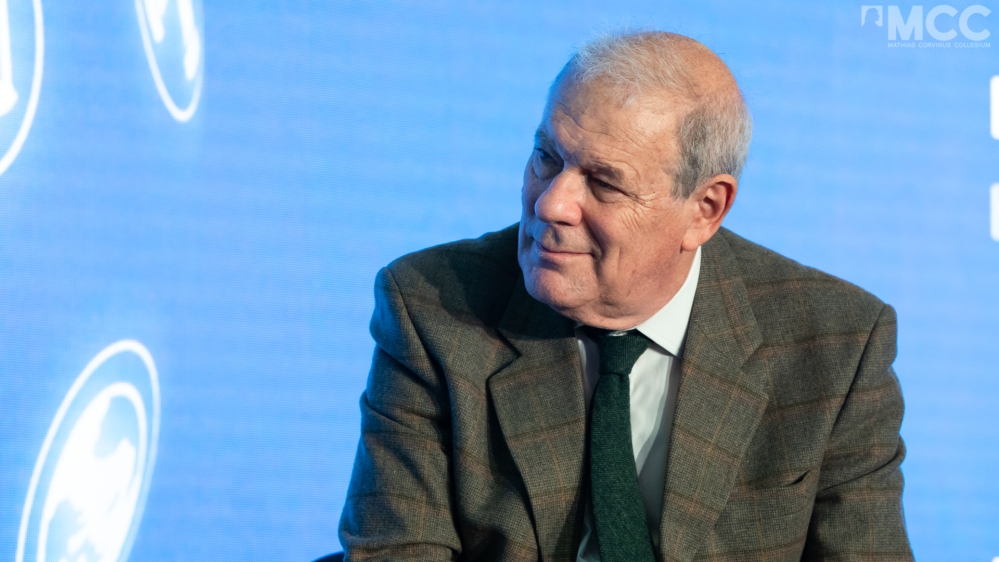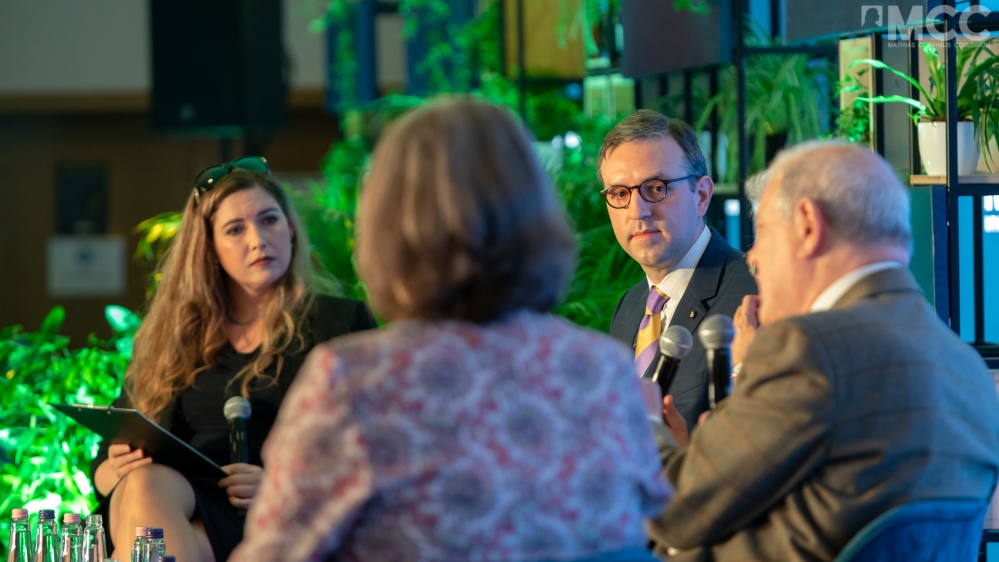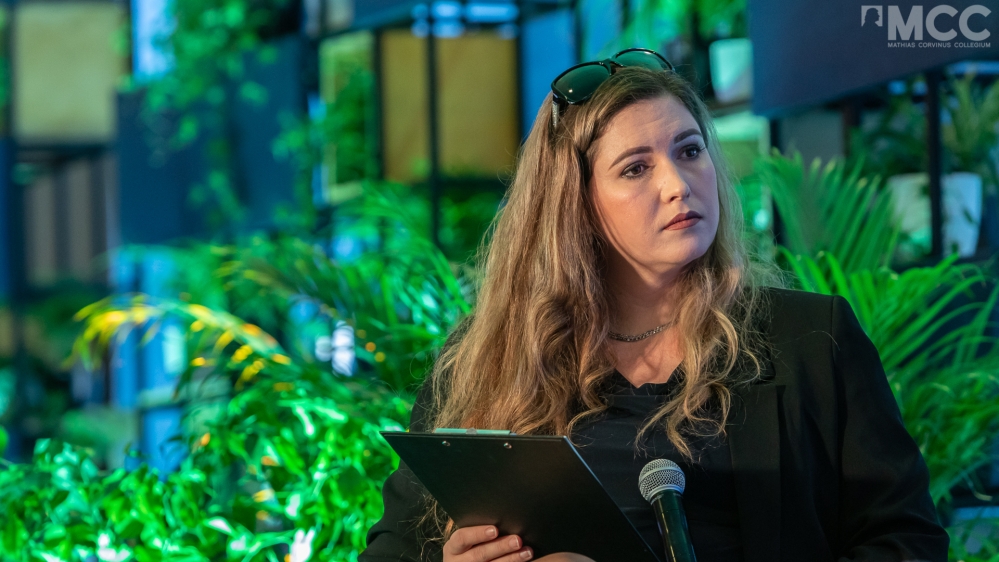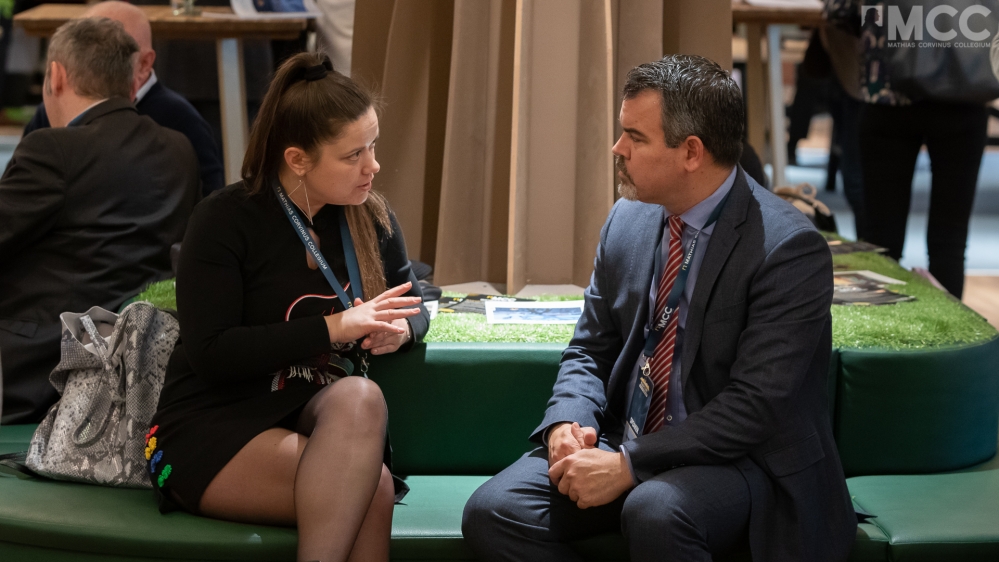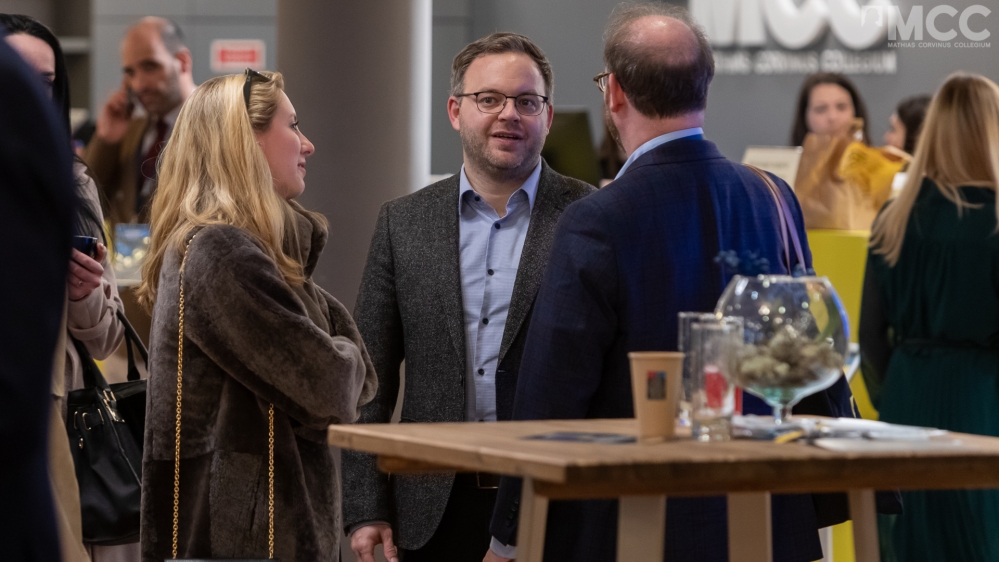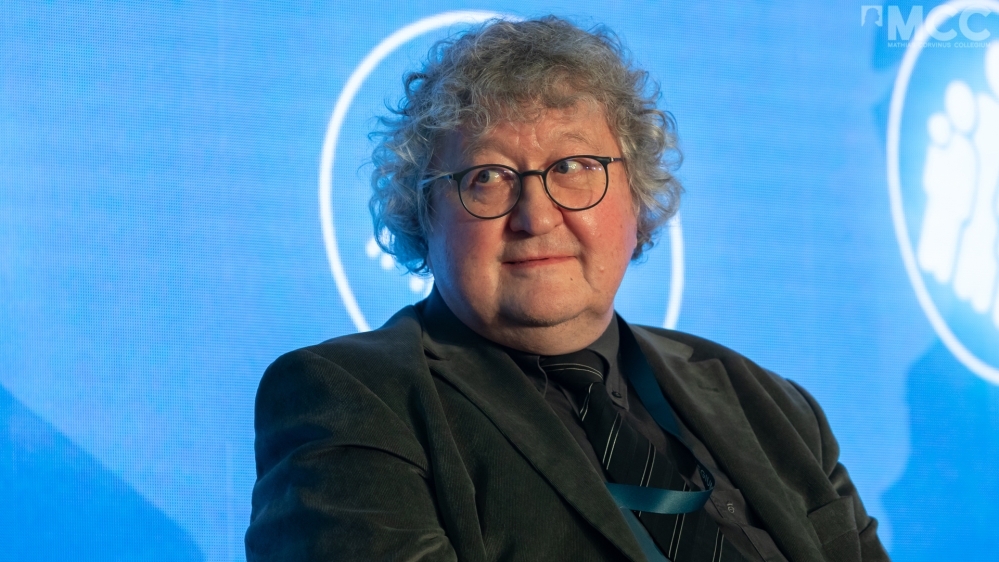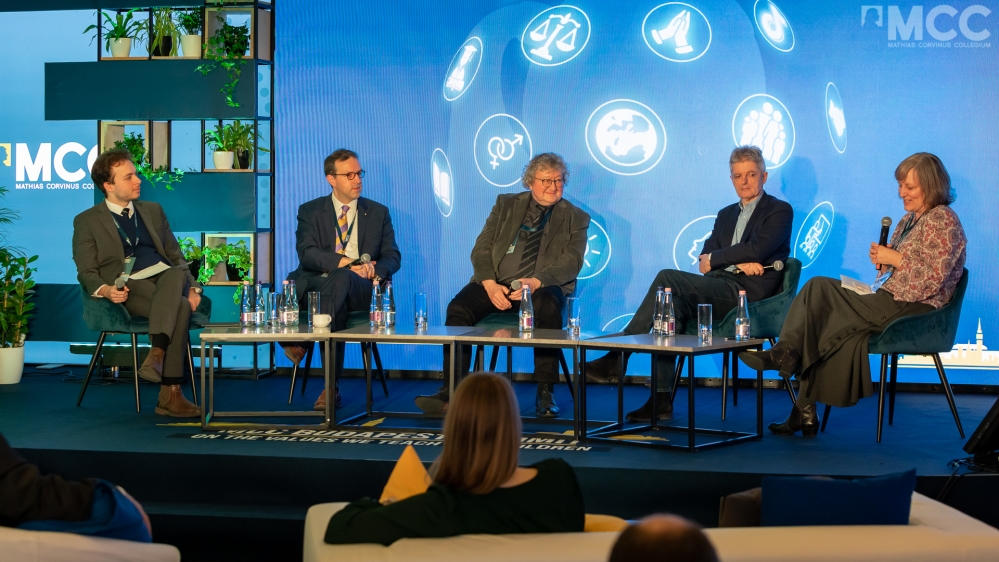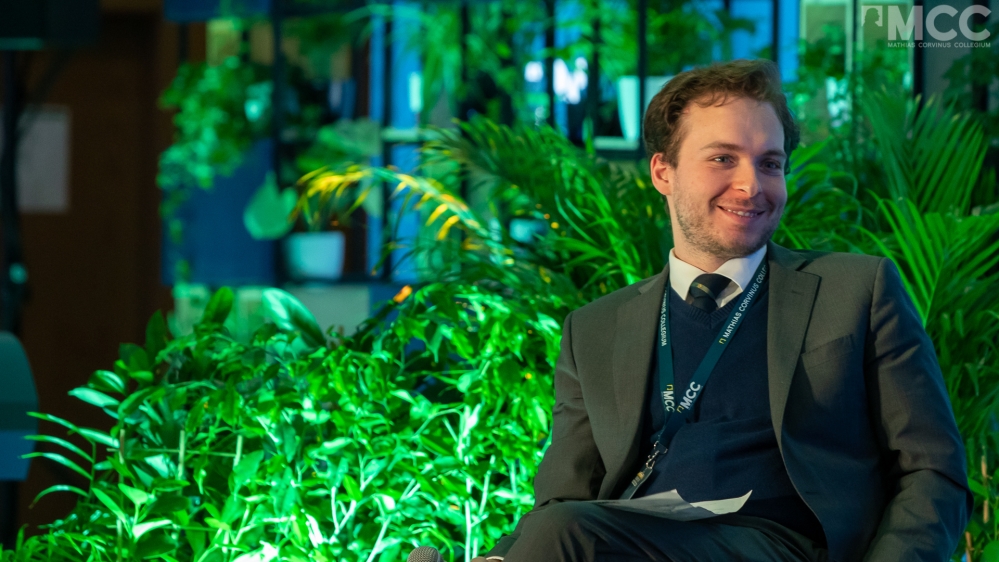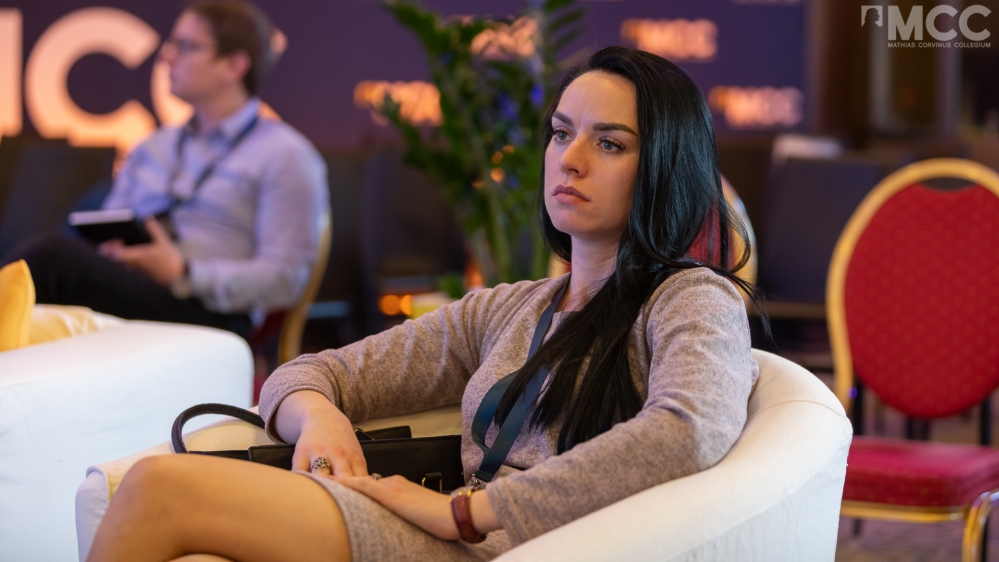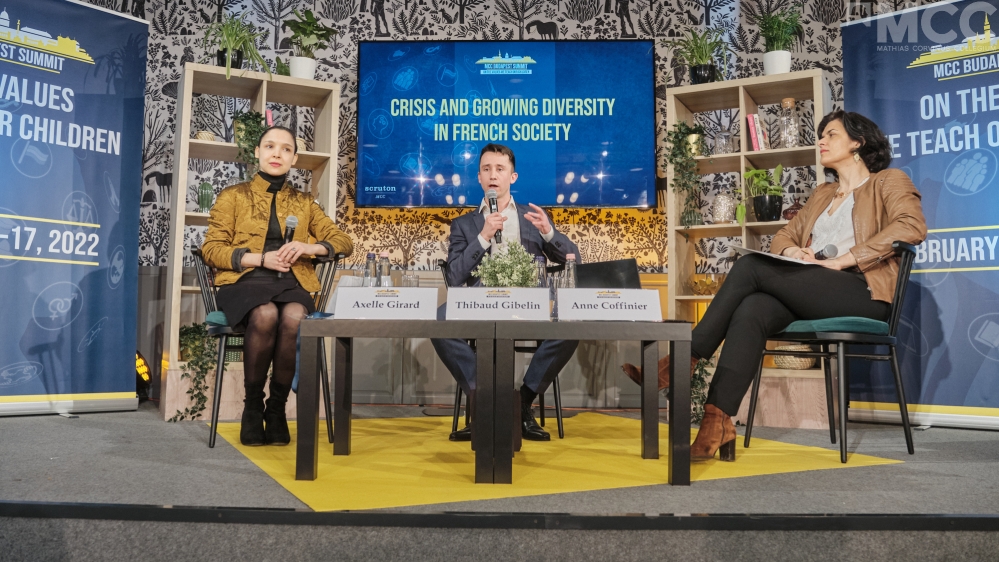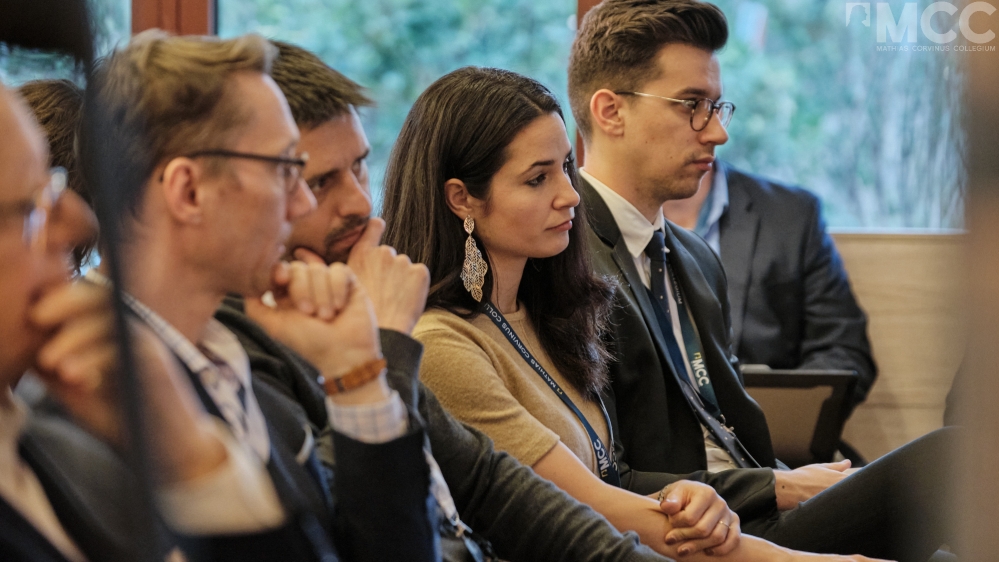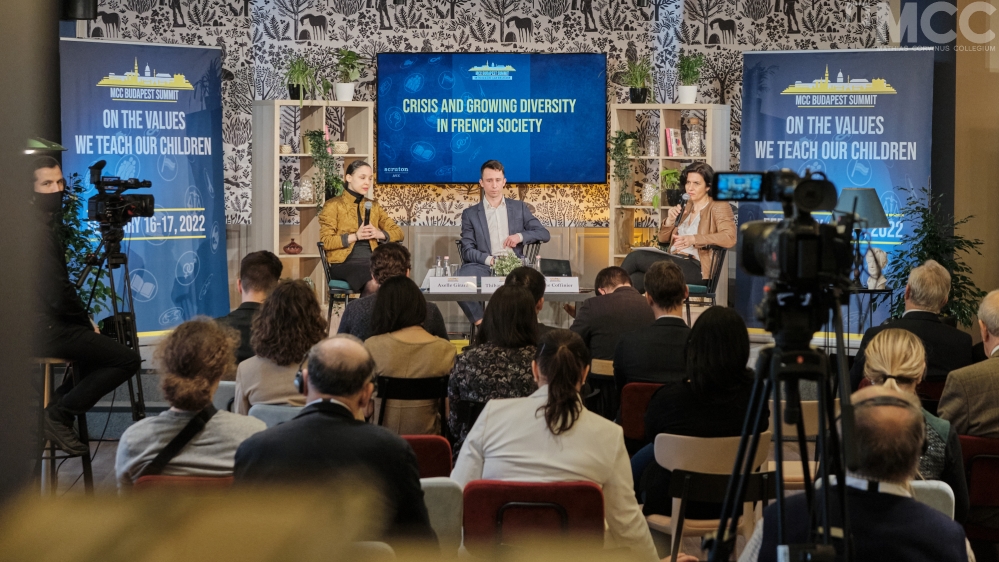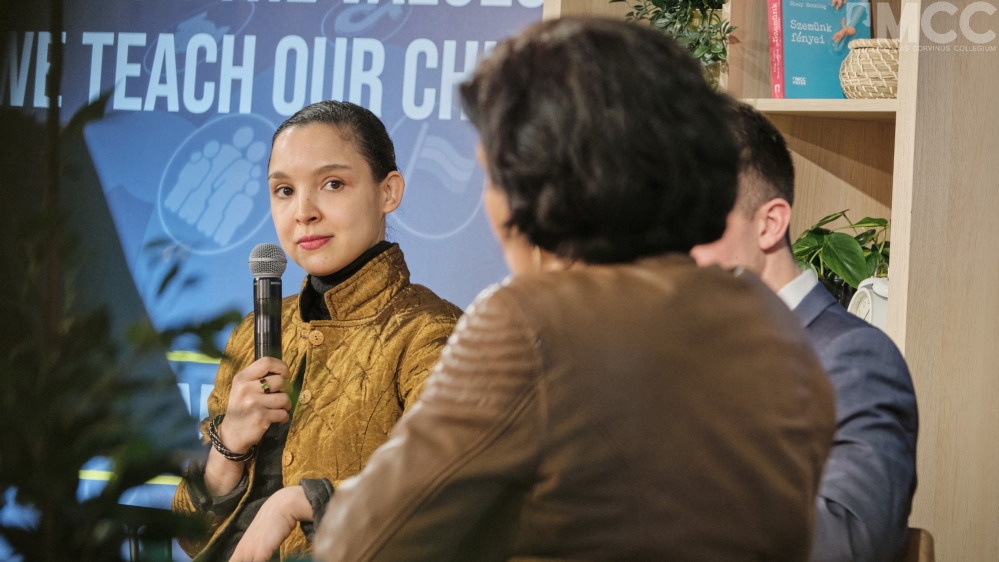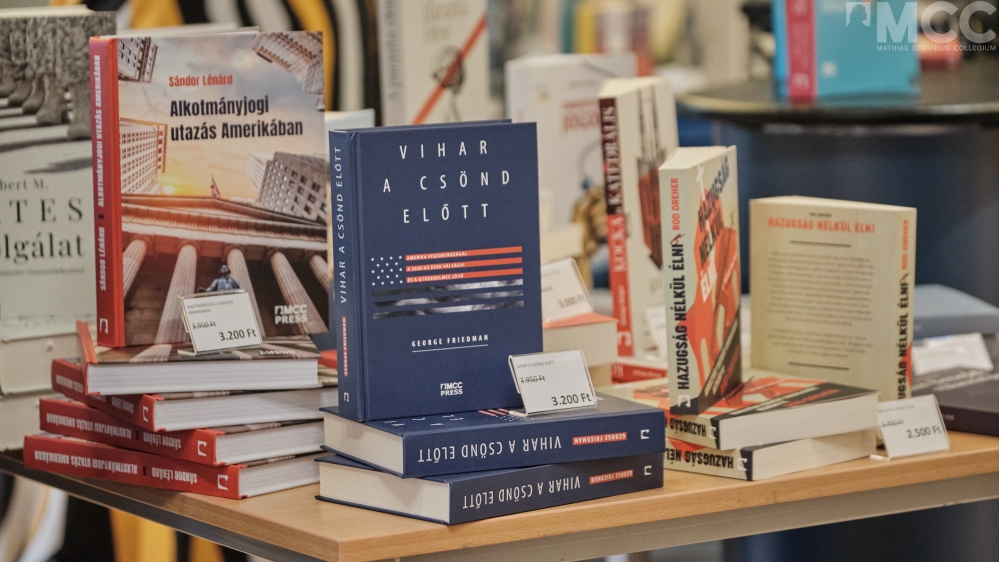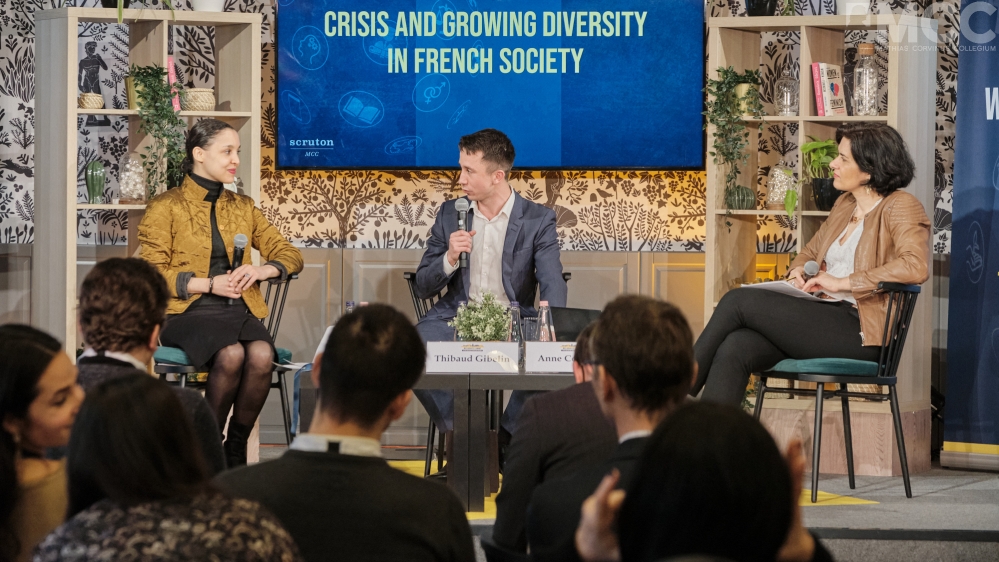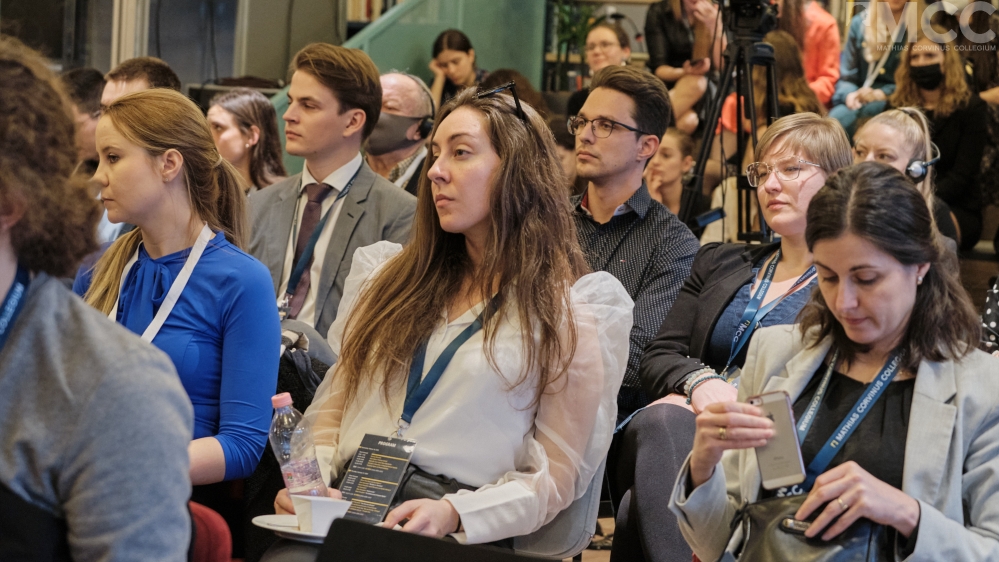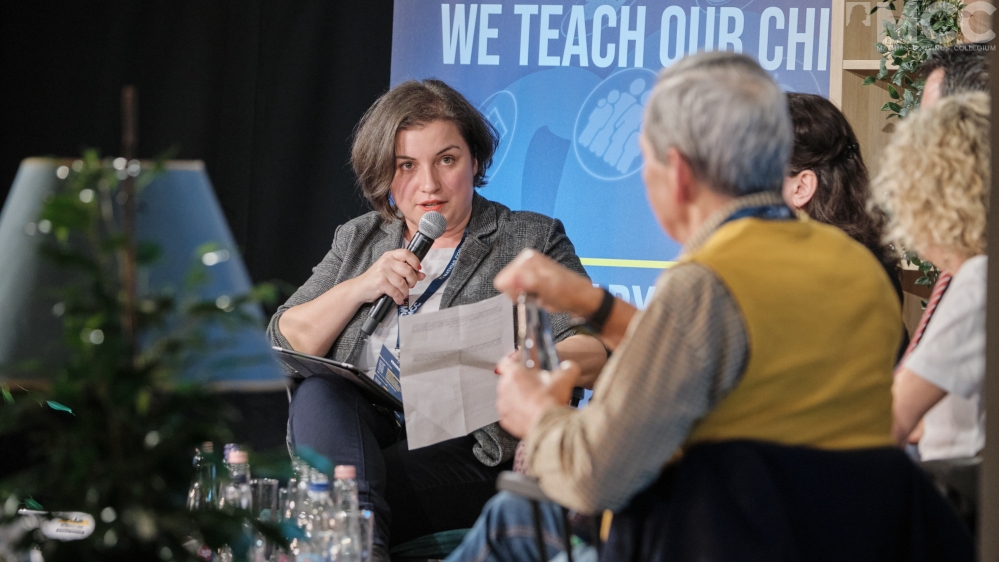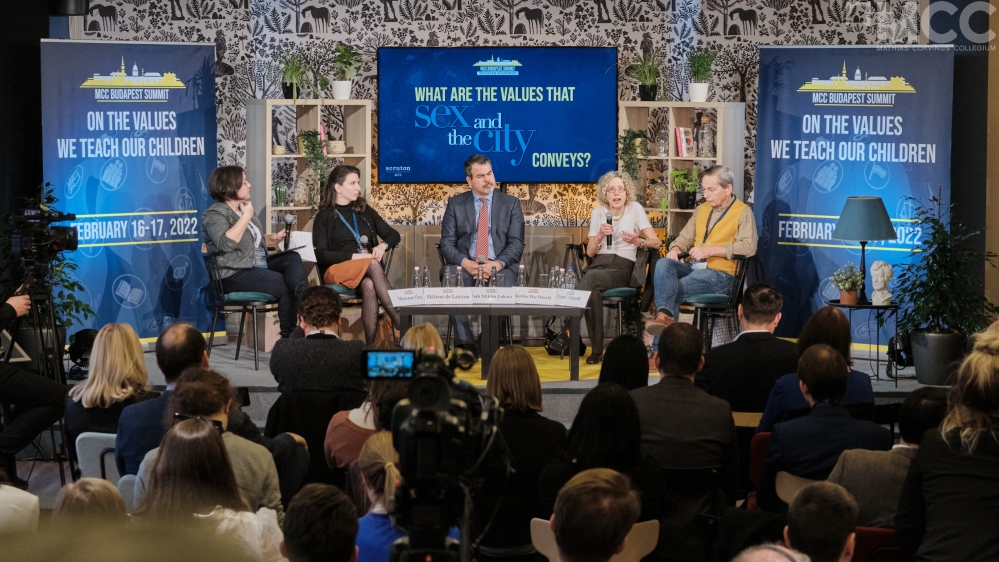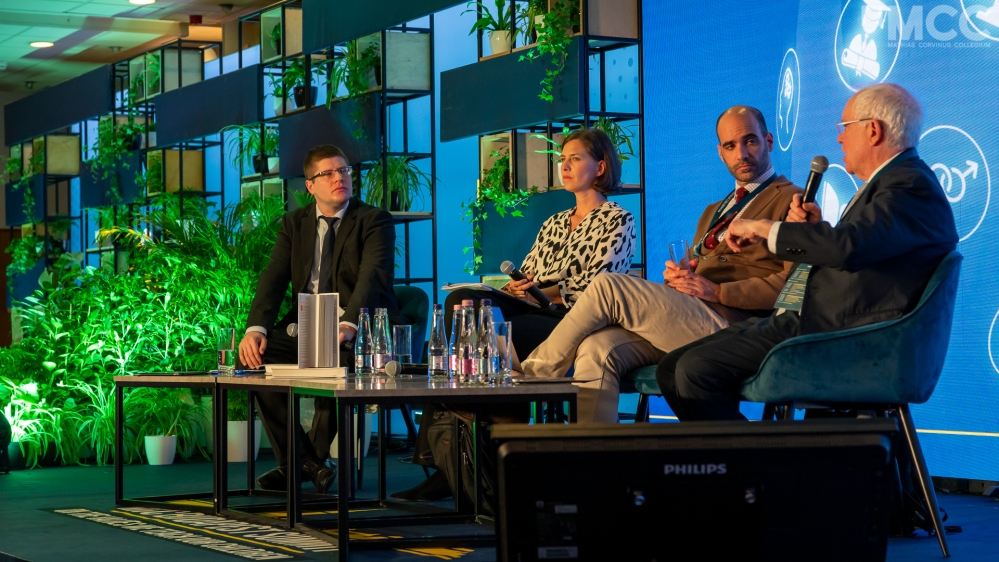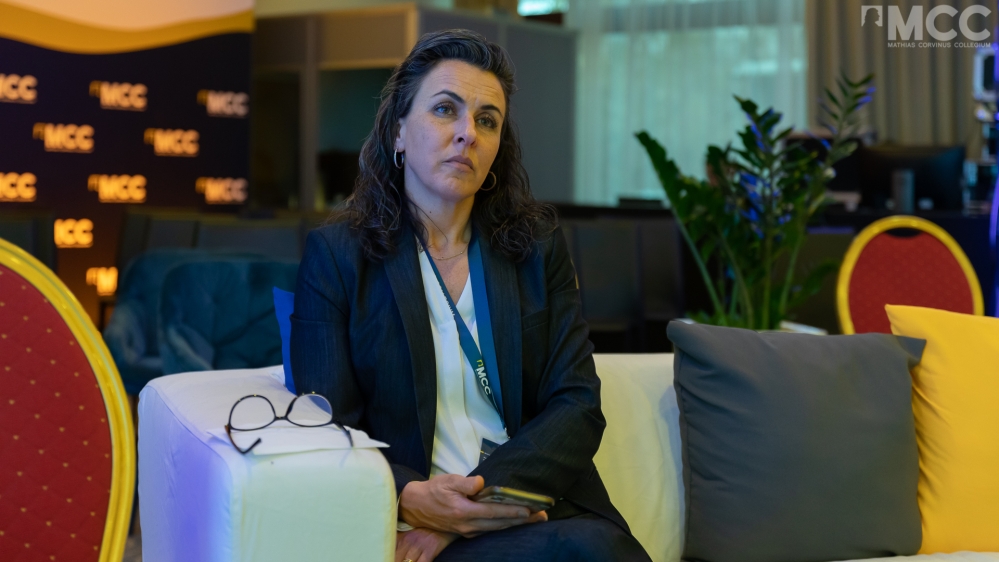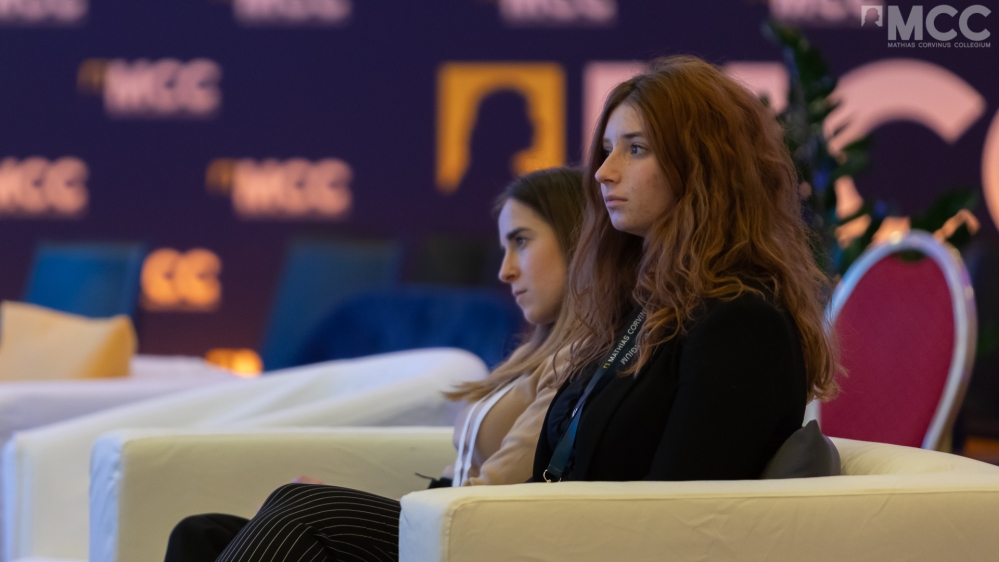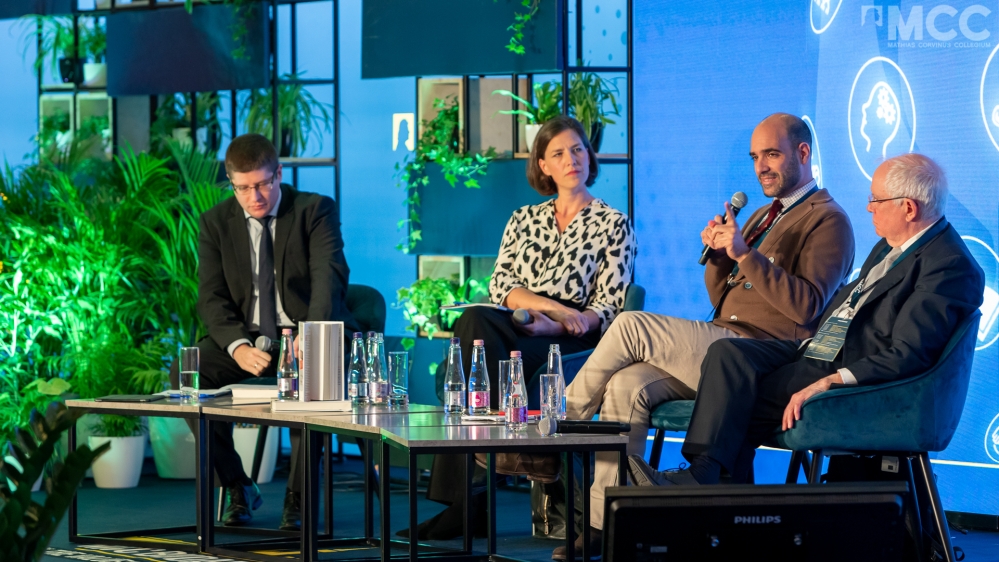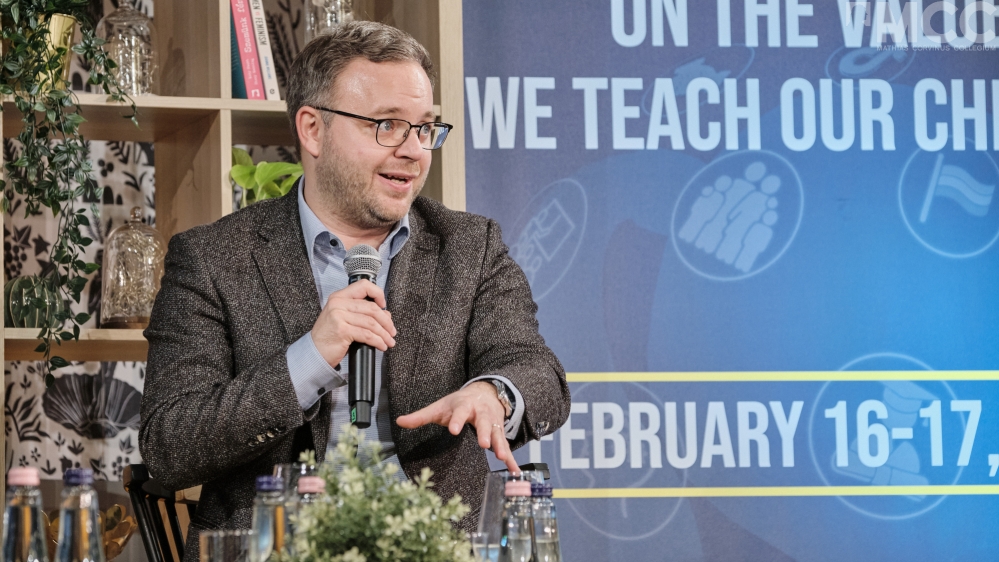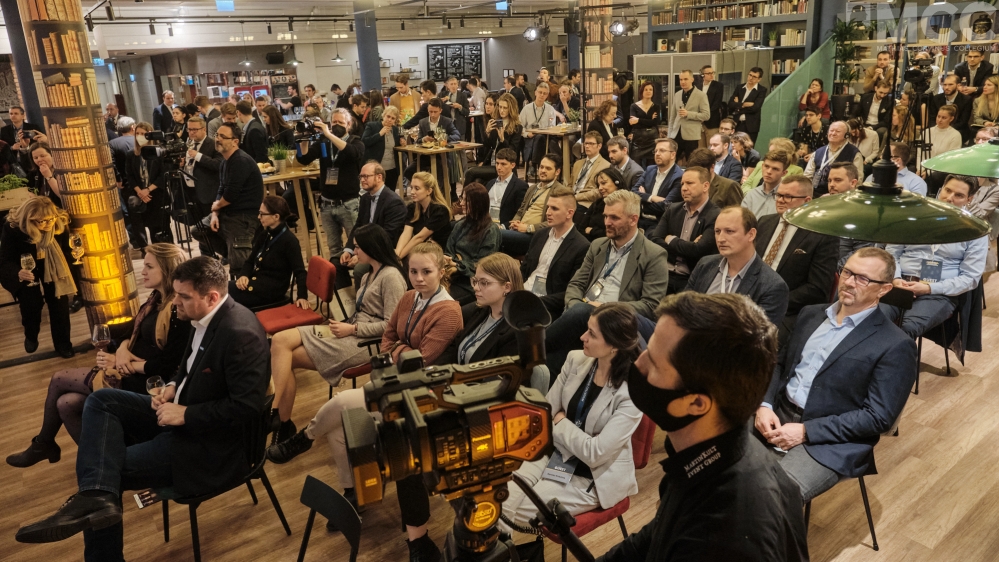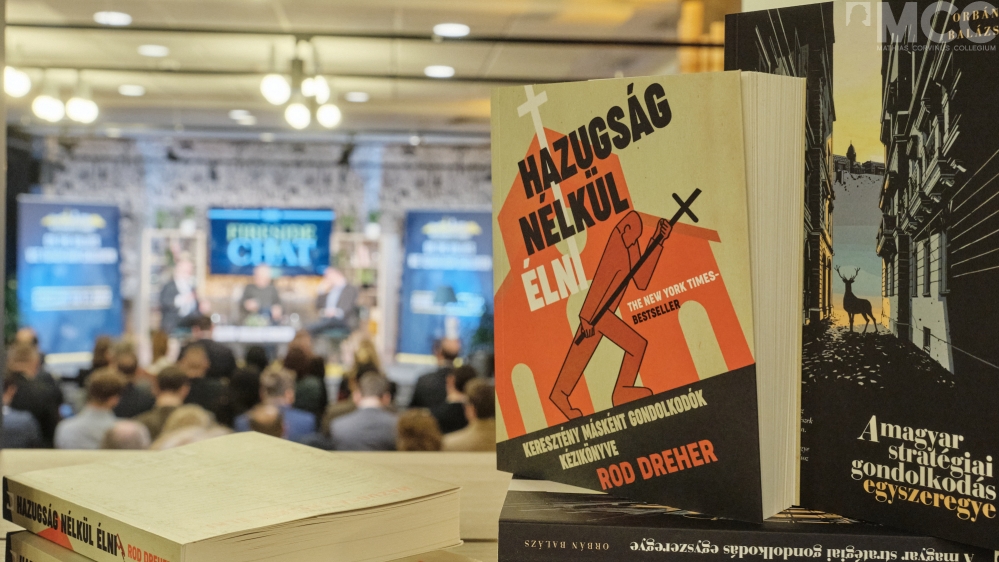Reading time: 17 minutes
The MCC Budapest Summit 2022, a major international conference organized by Mathias Corvinus Collegium (MCC) ended with great success. The conference was seeking to shed light on the values we teach our children. On the second day of the event - 17 February 2022 - exciting discussions and book presentations involved more than 30 speakers from Hungary and abroad and an audience of nearly 750 people. MCC, as a talent development institution aims to become the largest and most dynamic think tank in Hungary - and even in Central Europe.
What are the main spaces for education and formation?
The essence of education lies in exploring new perspectives.
The second day of the MCC Budapest Summit started with an exciting panel discussion. On Thursday morning, experts shared their thoughts about the main spaces for education and formation.
Alka Sehgal Cuthbert, member of the Education Forum of the Academy of Ideas, pointed out that, besides the family and educational institutions, the importance of popular culture has grown since the 1960s due to the new spaces of youth culture. According to her, as young people started to socialize themselves, adult society and school has had less and less influence on them, and educational institutions have not found an answer to this situation, as they had not encountered anything like it before.
In this context, Gergely Böszörményi-Nagy, President of the MOME Foundation, drew attention to the loneliness of today's young generation. He argued that maximizing the number of students in higher education institutions is beneficial for community building and education. He stressed that it is necessary for students to socialize with each other, but this is much harder to do in a mass.
Calum Nicholson, visiting fellow of MCC and Danube Institute pointed out that formal education today focuses primarily on the transfer of technical content and knowledge. The transmission of traditional values and more natural ways of interacting is less emphasized, which can also have an impact on the socialization of young people. He added that the essence of education lies in exploring new perspectives - a value that is crucial to preserve.
Imre Porkoláb spoke about technological innovations and their role in education. The head of the MCC Leadership Academy stressed that today, on the threshold of the next technological breakthrough, it was indispensable to define the standards and quality we want to achieve and pass on to the next generation.
Discussion on the book The Diversity Delusion
Diversity - a delusion or a maze?
On the second day of the international conference, a discussion was held on the book The Diversity Delusion. The event was moderated by John O'Sullivan, head of the Danube Institute. In his introductory remarks, he noted that we were living in revolutionary times, with language becoming a battlefield, words becoming banned and new ones emerging.
Language codes are reflecting social problems, said Heather Mac Donald. The New York Times bestselling author and Manhattan Institute fellow highlighted in the introduction that the emphasis on race in the public sphere produced a huge problem in American society. Rational dialogue is made more difficult by the fact that it is impossible to talk about the behaviors and cultural habits that give rise to racism in America. We are not allowed to explain racial and gender differences. The author stressed that her purpose in writing the book was to argue for values and to push back against the narrative that racism is the sole cause of racial inequality.
Peter Kurti, Adjunct Associate Professor at the University of Notre Dame in Australia, spoke about the public issues related to diversity in a religious context. He pointed out that the hope identity politics offers is false, once you are stigmatized, you cannot do anything.
In relation to the book by Heather Mac Donald, Calum T. Nicholson, visiting fellow at MCC and Danube Institute, noted that when we talk about minorities, we may also mean social classes or groups, not just groups of people classified by color or ethnicity. He added that people often use their victimhood as a way to gain a new identity.
Rodrigo Ballester pointed out that there is a discourse on diversity in the European political arena, between member states and EU institutions. According to the head of the MCC Center for European Studies, Brussels sometimes overemphasizes issues related to race and discrimination, while not paying enough attention to the diversity inherent in national traditions and traditional values.
Discussion on the book Women vs. Feminism
We must be ourselves and work professionally, regardless of gender.
Experts put forward exciting questions at the discussion on Women vs Feminism, a book by Joanna Williams. The author of the book drew attention to the excesses of activists and those who promote an ideology associated with women's rights. According to the director of the Cieo think-tank, advocates of modern feminism communicate anti-male messages and paint a horrible picture to women of the world as a place where women will not earn as much as men, will be victims of sexual harassment and subjected to street abuse. She said that her purpose in writing the book was twofold: to shed light on the background of feminism, on the inherently good ideas in feminism on the one hand, and to counter the idea that women are victims and men are the enemy on the other.
Sports journalist Zsuzsa Csisztu mentioned that she had been working in the profession for 30 years, and although she entered a male-dominated profession in 1992, the situation has by now changed considerably. The vice-president of the Hungarian Sports Journalists' Association noted that in this profession you don't have to speak, act or appear like a man. The key to success is that, regardless of gender, you have to be authentic and work professionally.
Sophia Kuby made it clear during the discussion that women have as many opportunities as men. The Director of Strategic Relations and Training for ADF has a view on how young people are building their careers in Asia, Europe and South America and does not believe that women have to constantly fight for female privilege. She stressed that feminism should be seen in the context of what is going on in today's culture, what is the identity and role of women in today's society. Unfortunately, feminism has now become a power game. Instead, it should be put into a cultural context rather than taken as an isolated phenomenon. The feminist movement is not a movement, it is a war against each other, as feminists do not even agree on what feminism is.
Katy Faust pointed out in her contribution that she had not thought about feminism until she started thinking about marriage, family, and children's rights. According to the founder of the movement Them Before Us, gender is an ideological, social construct, and the focus is no longer on stopping real rights violations.
Should Education about Sexuality and Gender Belong in the Classroom?
Focus on the healthy development of our children.
One of the most burning and divisive issues of our time is whether education about sexuality and gender should belong in the classroom. This was also the subject of the afternoon panel discussion on the second day of the MCC Budapest Summit.
The MCC visiting Fellow Gladden Pappin stressed that while there were different ways to teach sexuality, it is important that when children ask questions, we answer them in an age-appropriate way. According to the University of Dallas Associate Professor, that is how it was in the past and that is how it should be today, as it is the aspects of the nature of sexual activity that have changed over time. He warned that through social media, our children can too easily and too quickly access contents that can have a negative impact on their healthy sexual development. The challenge for the U.S. education system is the extent to which it is necessary to relativize the determination of biological sex.
Alka Sehgal Cuthbert, member of the Education Forum of the Academy of Ideas, spoke about her experience in the UK. According to her, the subject of relationship education raises the fundamental question of what methods can be used to teach it l, given the complexity of the definition of a healthy sexual relationship. Another difficult question is how to approach, from a technical point of view, the most intimate and personal thing one can experience, she added.
The writer, journalist, cultural critic and psychiatrist Anthony Malcolm Daniels believes that trying to teach sexuality in the classroom creates a difficult situation, because the parents and families of the children in the classroom may have very different ideas about what the child should learn about the subject. So, who is to decide what to teach about relationships and sexuality in school? What parental consent should be required? - the psychiatrist asked.
Bonnie Snyder, director of High School Outreach at the Foundation for Individual Rights in Education, stressed that the issue of appropriate teacher training is crucial. Does the teacher, or the person who is delivering the sex education course, have the necessary knowledge and authority?
The experts all agreed that this was an extremely difficult and in many ways a very subjective issue, but the safety and healthy development of our children is in our common interest and this is what should be our primary concern.
Challenges for the French society - a debate on diversity
Wokeism and the fragmentation of society in France are produced in public schools
The MCC Budapest Summit continued with a panel discussion entitled "Challenges for French society: a debate on diversity", which focused on the radical changes that have taken place in the French education system. Alternative schools, the marginalization of French culture, equity at all costs were the main points of a fascinating discussion on the crisis of old and new French values.
The MCC visiting Fellow Thibaud Gibelin, started the discussion with a description of the French education system that goes back to the 1870s, and which has served as a model for education systems in other countries. However, 1968 brought about changes in Western society, which slowly filtered into the French education system as well. According to the expert, in recent times the French government has increasingly taken control out of the hands of parents and, under the label of diversity, has marginalized the teaching of French culture, history and philosophy, so as not to do harm to the multicultural environment in today's classrooms in France.
Anne Coffinier sees alternative education as a response to the crisis of the French education system. According to the founder of the ‘Fondation Kairos pour l'innovation éducative’, many teachers and parents are forced to turn to independent educational institutions. In public schools, the classics and French history are considered too discriminatory. Thus, French culture becomes alienated and immigrants are denied the chance to embrace French values. We have to get acquainted with ourselves, both as a people and as individuals - said Coffinier.
Axelle Girard, Managing Director of Créer son école-Educ'France, added that in France, the competence of students is declining steadily, and this is a growing concern for more and more people. She also quoted the French writer, Alphonse de Ruble, who said that the more we know, the better people we are. The state has turned its back on this. Girard mentioned the work of Jacques Derrida and his deconstructionism, which was constructive for her as she had read the philosopher's work as an individual with established values. She believes that today Derrida's work would have a deconstructive effect on many, because of the internalized shame that many young people feel about their Western roots.
In conclusion, Thibaud Gibelin said: "We are living in a confusing new reality caused by equity and relativism. Modern ideologies, such as the gender ideology, encourage our children to question even basic facts about themselves. He stressed that Hungary still has a culture of debate with strong European roots, which has allowed our country to preserve meritocracy as the building blocks of our institutions.
Discussion on the book Undoctrinate
We need education and training based on common values and community content.
An exciting discussion was held on Undoctrinate, a book by Bonnie Snyder at the conference of MCC. The book shed light on the harm that over-politicized education does to students.
Parents can do a lot to counter the ideological politicization of education, Bonnie Snyder stressed. The director of High School Outreach at FIRE said that not only can they equip children against one-sided influences through parenting, but they can also achieve significant results if they speak with one voice.
Education is always political, noted Gladden Pappin. The Associate Professor at the University of Dallas pointed out that when left-wingers and liberals emphasize the independence of education and teach acceptance and freedom, they are in fact transmitting political ideologies. The MCC visiting fellow also said that the problems of the American education system were tending to make students vulnerable to trends because they are not provided the right tools to protect themselves, and nor the values to hold on to.
There is a need for an education and formation that is based on shared values and community content - said János Setényi. According to the head of the MCC Learning Institute, this is what we should be striving for, despite the fact that trends seem to be going in the opposite direction.
In his reaction to this idea, Professor Werner Patzelt, MCC senior visiting fellow argued that in multicultural societies, the definition of shared values is a major challenge. In Germany, there is often a conflict between the values that families from different cultures consider to be most important for themselves and the values transmitted through the education system.
Bonnie Snyder's book will soon be published in Hungarian by MCC Press.
What values does the series Sex and the City promote?
The impact of the series Sex and the City on identity-formation
What values does the series “Sex and the City” promote? How do this series and other similar productions influence the identity formation of young people? The audience of the MCC Budapest Summit had the opportunity to hear an exciting exchange of ideas on this topic.
The historian Hélène de Lauzun said: "This series has had a major impact on young people's way of thinking, as it has a somewhat harsher approach to sexuality than that of previous series. The columnist for The European Conservative explained that the series was intended to bring pleasures to the fore and to question the traditions of the past. The author also pointed out that young people today no longer read or watch films, TV series are the only thing that engage them, so they also have an educational function.
The series has separated sexuality from its emotional component, laying the foundations for the materialistic values of today," said Miklos Vajk Lukacs de Pereny, visiting fellow at MCC. The series presents sex as a product and is mainly aimed at young people and teenagers, those who do not yet have enough life experience and are therefore highly impressionable," he explained.
The New York Times bestselling author and Manhattan Institute fellow Heather Mac Donald noted that Sex and the City tried to suggest that there was no difference between the sexual needs of men and women.
The sociologist Frank Füredi, professor at the University of Kent, stressed two important points: first, this production attributes too much importance to sexuality, anything that is not related to it is secondary. The second main message the series tries to convey is that our identity is defined by our sexuality. The new season of Sex and the City is entirely about Vogue politics, an over-emphasis on gender ideology, which was not left unnoticed by critics –he added
Discussion on the book The Debasement of Human Rights
We have moved far away from the fundamental rights of human beings and law has been deprived of its moral aspect
We have the right to choose freely, but we are responsible for our choices and decisions," argued Aaron Rhodes, President of the Forum for Religious Freedom- Europe at a discussion held on the book The Debasement of Human Rights. The senior fellow at the Common Sense Society stressed that people in the 21st century have increasingly moved from the sphere of morality to the sphere of law. Human rights have become one of the most controversial issues of our time.
Sophia Kuby, Director of Strategic Relations and Training for ADF, agreed with the author of the book. She added that she believed in a universal law, in the sense that there are fundamental rights that all people, regardless of nationality or religion, are entitled to. Such rights are the right to freedom or the right to life. One of the biggest problems of our time is that lawyers and legal professionals cannot agree on the definition of a human being, and this leads to the problem that we cannot even define his or her rights.
Rodrigo Ballester, head of the MCC Center for European Studies does not believe that universal rights could be applied universally to countries, cultures and religions. In his view, it is precisely the destruction of the principle of subsidiarity and the emphasis on abstracted human rights that allowed for the strengthening of bureaucratic powers.
For Aaron Rhodes, the problem lies in the fact that we have moved too far away from fundamental human rights and morality is emptied of meaning. We need to go back to the roots of human rights, because the reform of human rights is one of the great challenges for people today.
Budapest Lectures - Fireside Chat
Debate and the battle of ideas also generate progress.
The final event of the MCC Budapest Summit was a Budapest Lectures - Fireside Chat. An exciting informal discussion was held about valuable ideas. with the participation of the writer Rod Dreher, the philosopher Peter Boghossian and Balázs Orbán, Chairman of the MCC Board of Trustees.
There is a huge divide and hatred between political opponents in the United States, Rod Dreher and Peter Boghossian agreed. According to the two thinkers, they have not seen such a deep rift in Hungary. However, there is a strong political polarization - especially now during the campaign - in Hungary, added Balázs Orbán. He gave the example of the Hungarian reform era to remind the audience that debate and the battle of ideas can also generate progress, as we saw with Széchenyi and Kossuth.
In relation to the issue of the publicity of sexual orientation, Rod Dreher said that in American public life, those who make their otherness, gender or sexual habits public can achieve real success in politics and even in science. Balázs Orbán noted that in Hungary, people see this as a private matter, and people are free to express their sexual orientation as long as they do not try to influence children.
Then, the discussion extended to the topic of America’s position as world leader. Around the time of the change of regime in Hungary, the successful liberal model of American democracy was indeed an example to follow but today, Balázs Orbán said, there are serious challengers to this model, and highly successful economic and social models are competing. The problem, according to Rod Dreher, is that the new ideologies have lost touch with reality, not only are they inapplicable in societies with completely different roots - such as Afghanistan - but also they have a negative impact in the United States itself .
In this context, Peter Boghossian pointed out that this backlash is due to the attempt to relativize the Western Christian-Jewish tradition and faith, and to replace it with the so-called woke ideology, which is now culturally poisoning society.
A return to the values of Christianity and Christian life can help to overcome the crisis, Rod Dreher stressed. Balázs Orbán noted that in Central Europe patriotism is another basis that can provide people a stable set of values. Peter Boghossian pointed out that people are much better off economically today, there is peace in the Western world and still it is experiencing a crisis. To remedy this, serious efforts must be made to address this crisis in society and in the state structure.
The conference continued on Friday with events in MCC centers in the countryside. The Budapest Summit, the most significant international professional event organized by MCC was a huge success, with more than 30 speakers and 750 participants attending the conference.
